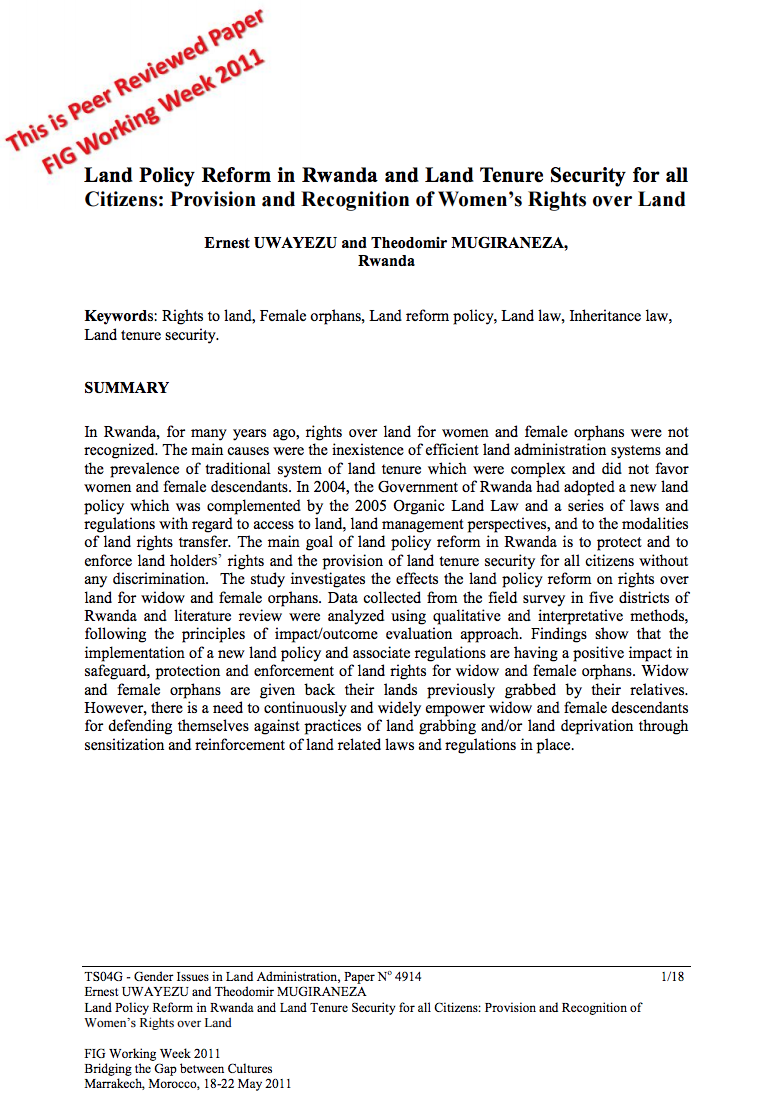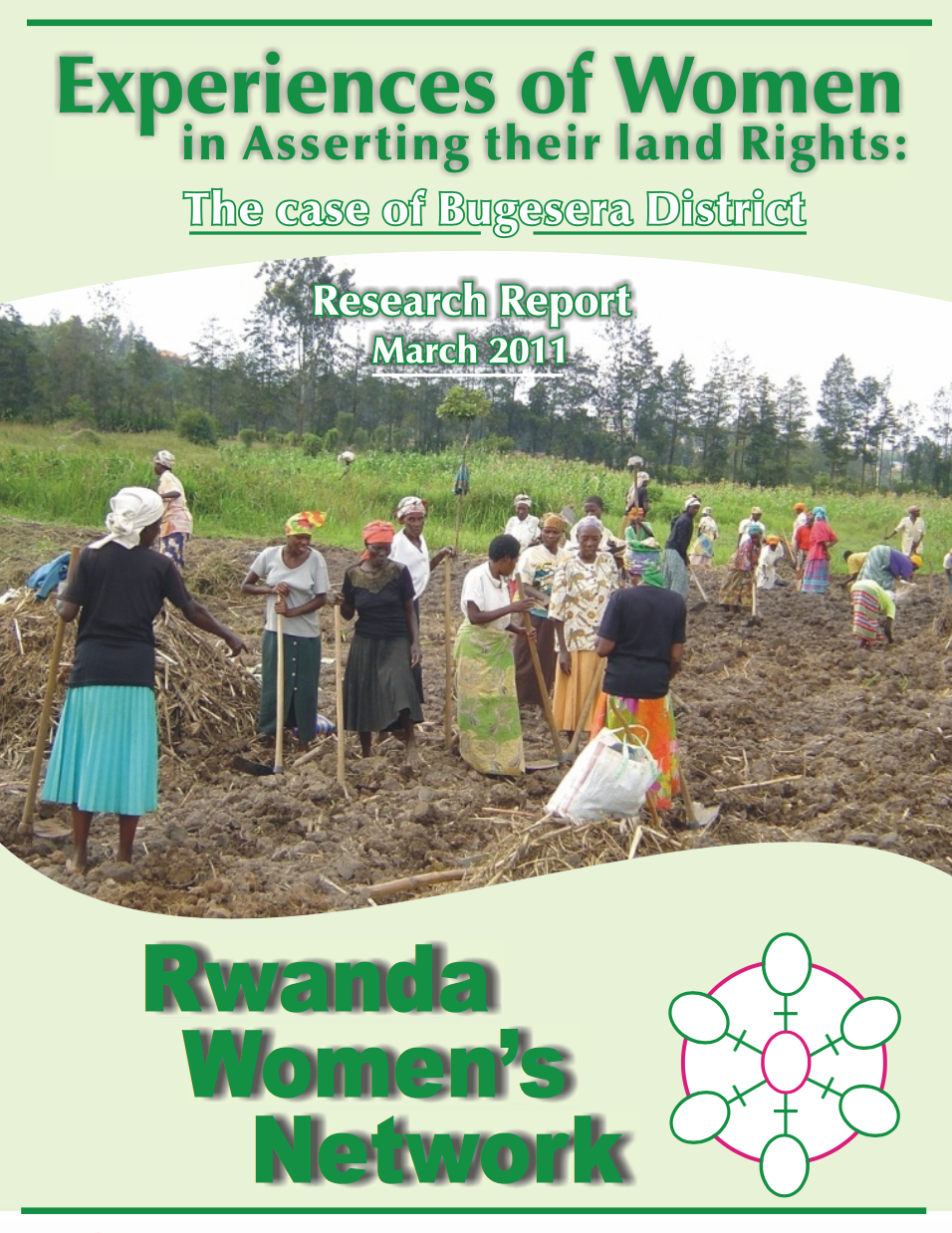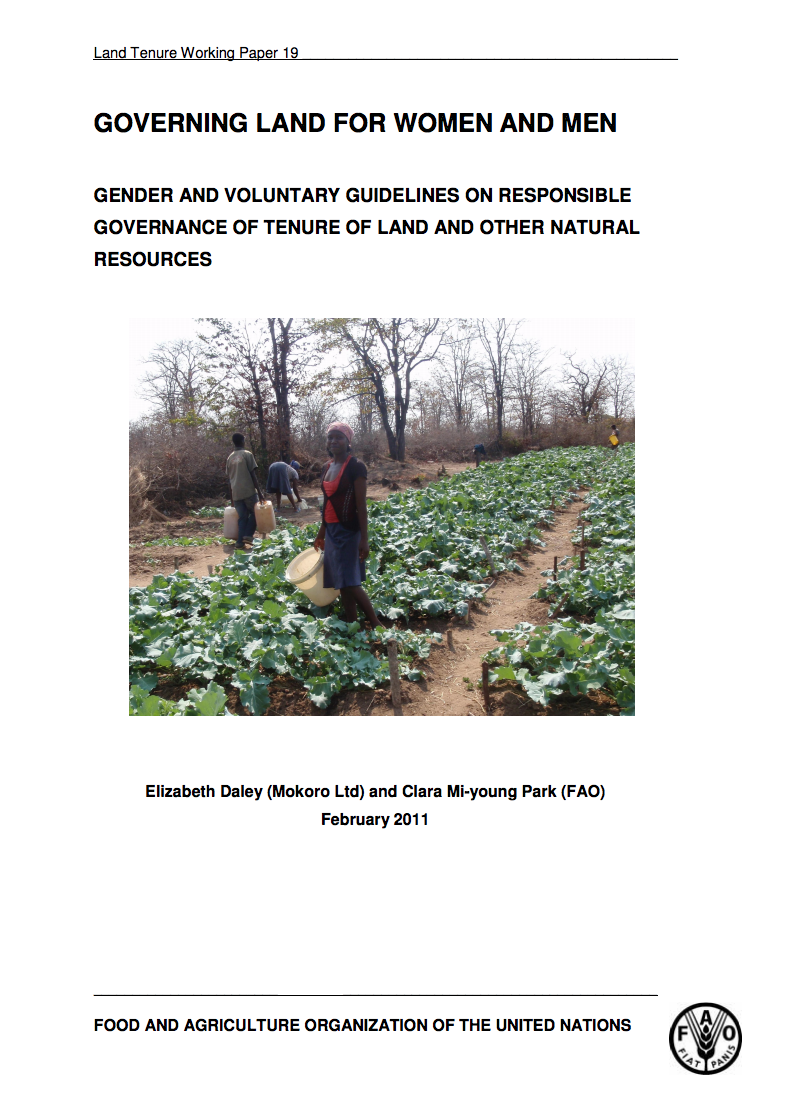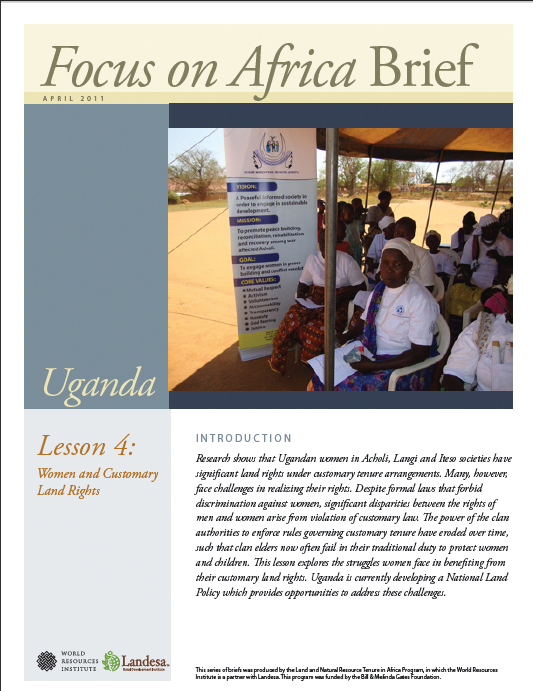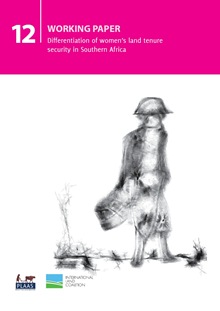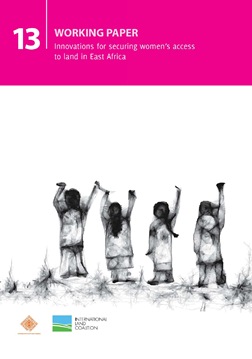Land Policy Reform in Rwanda and Land Tenure Security for all Citizens: Provision and Recognition of Women’s Rights over Land
In Rwanda, for many years ago, rights over land for women and female orphans were not
recognized. The main causes were the inexistence of efficient land administration systems and
the prevalence of traditional system of land tenure which were complex and did not favor
women and female descendants. In 2004, the Government of Rwanda had adopted a new land
policy which was complemented by the 2005 Organic Land Law and a series of laws and
regulations with regard to access to land, land management perspectives, and to the modalities

